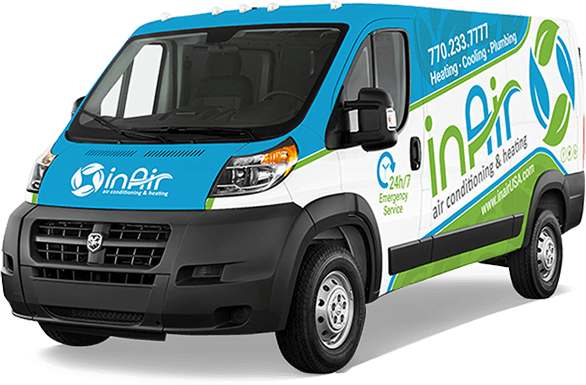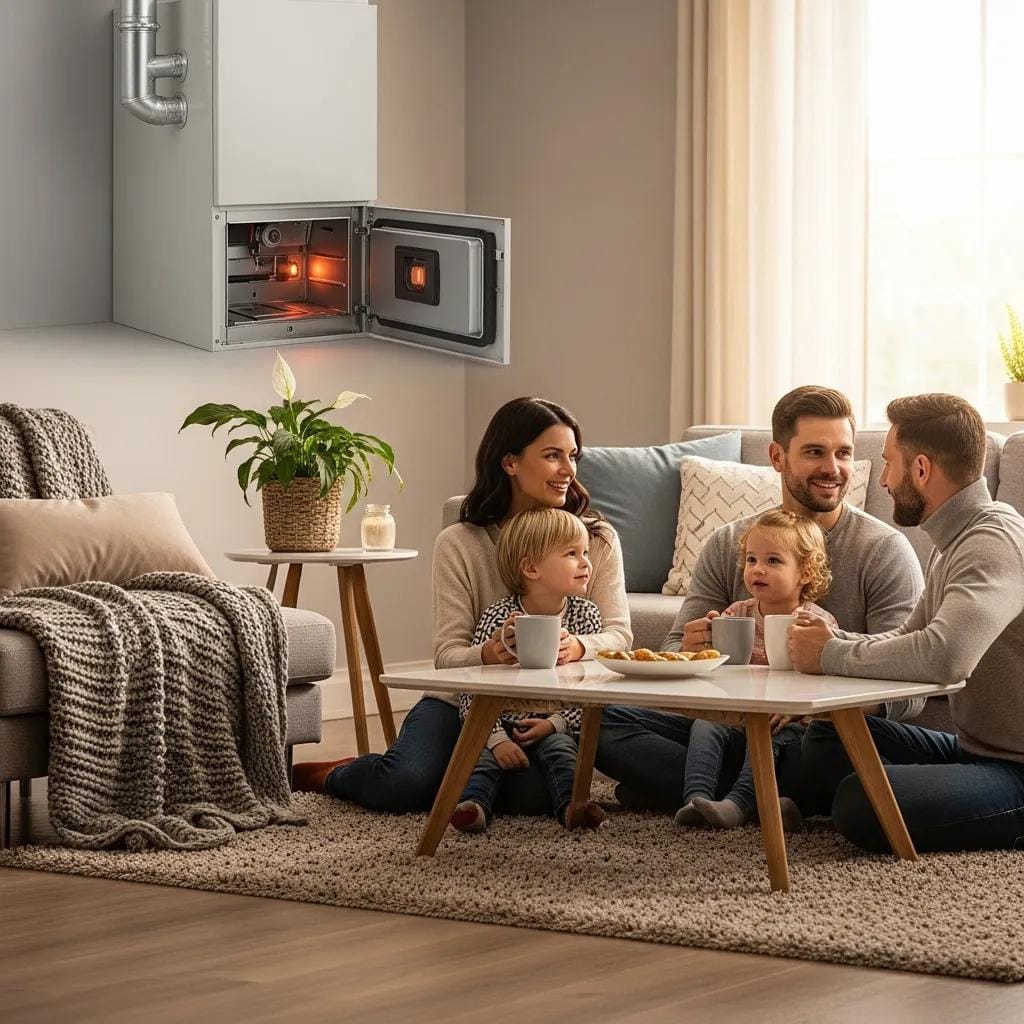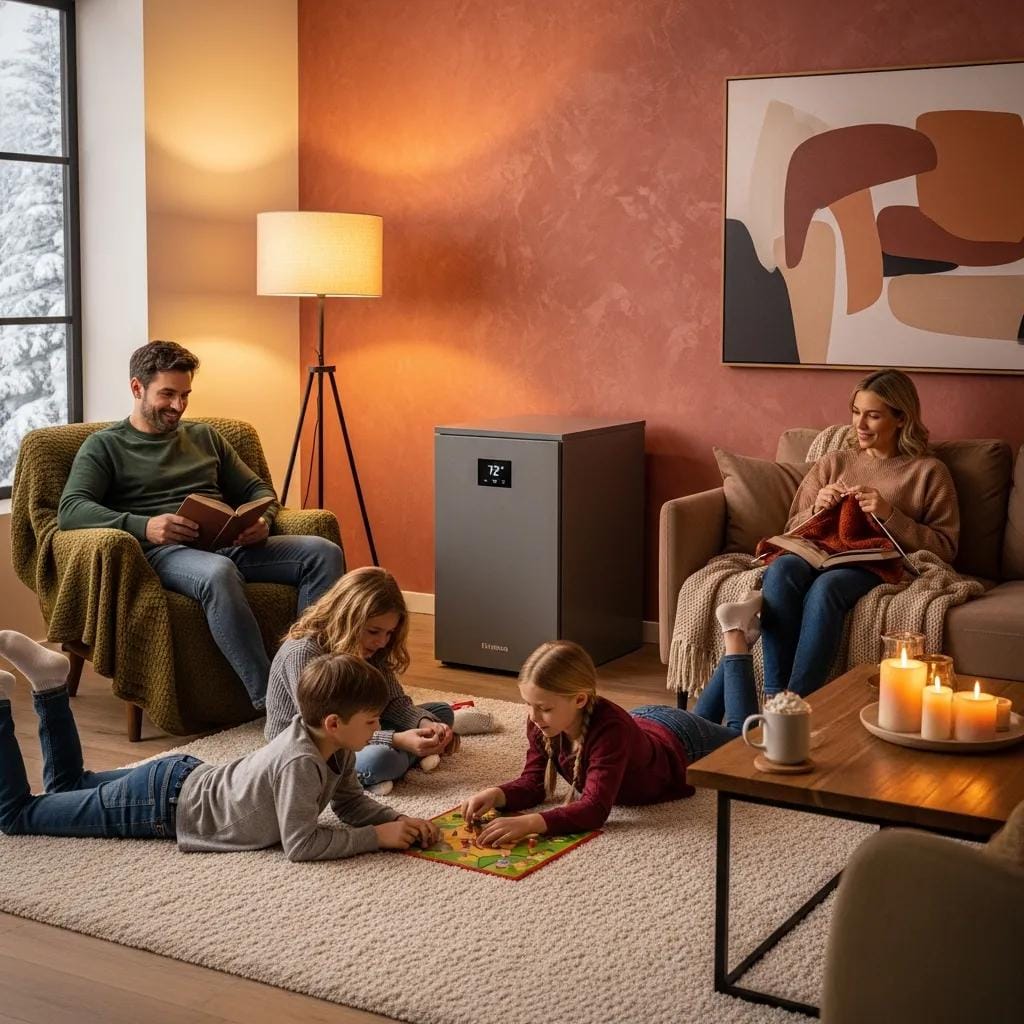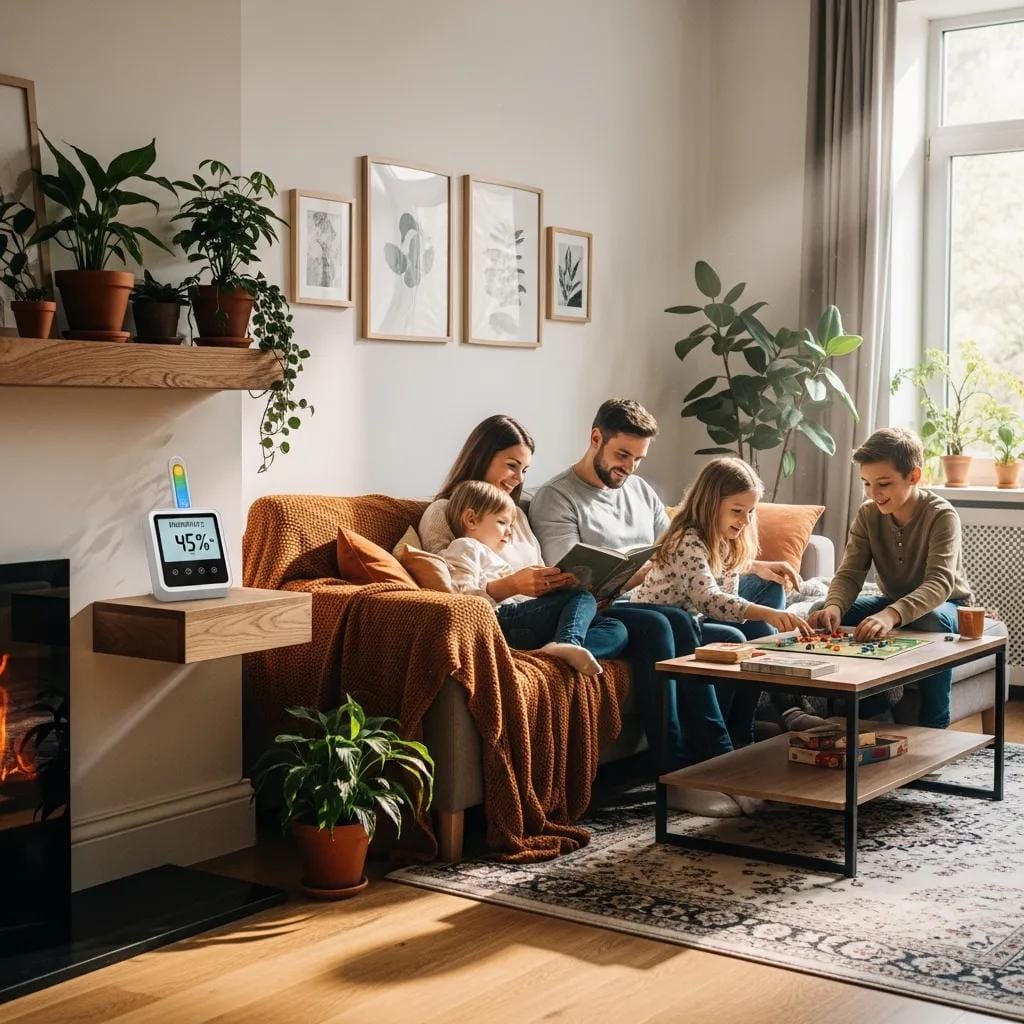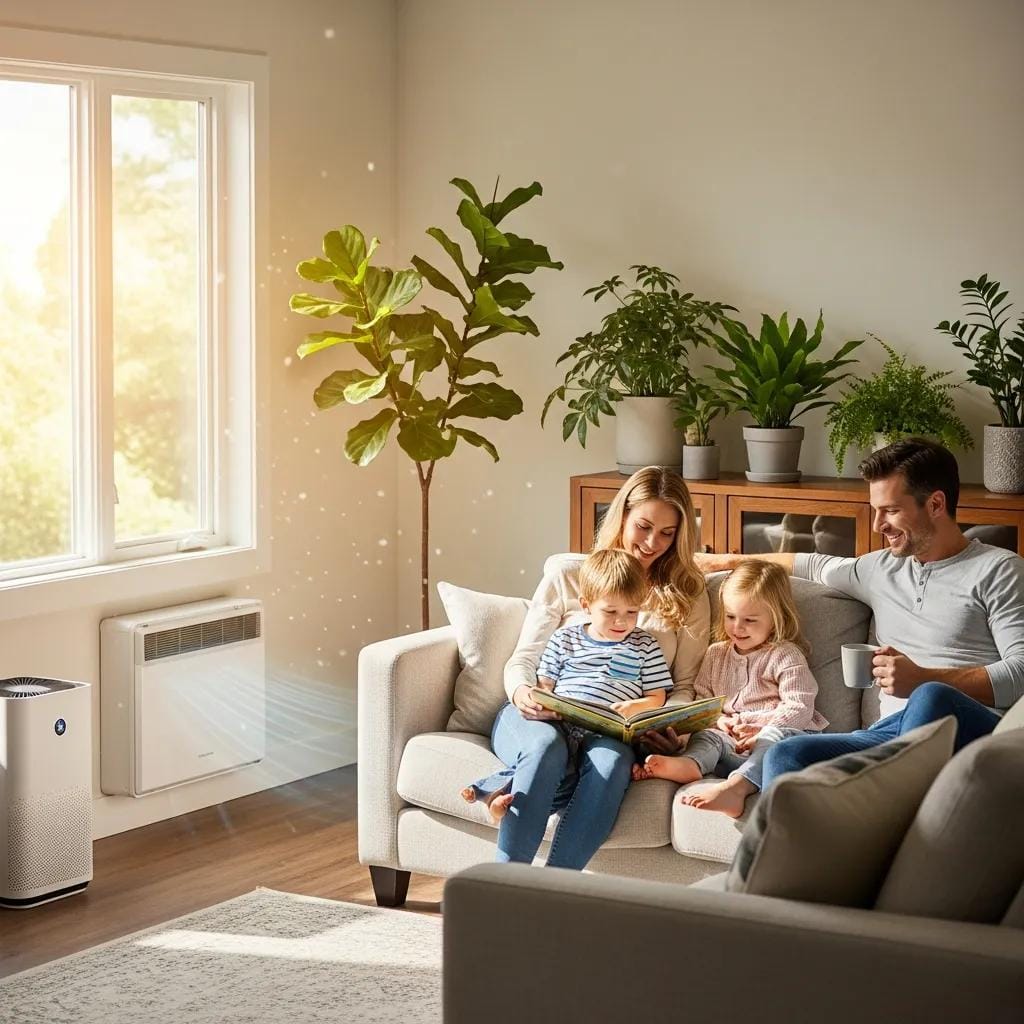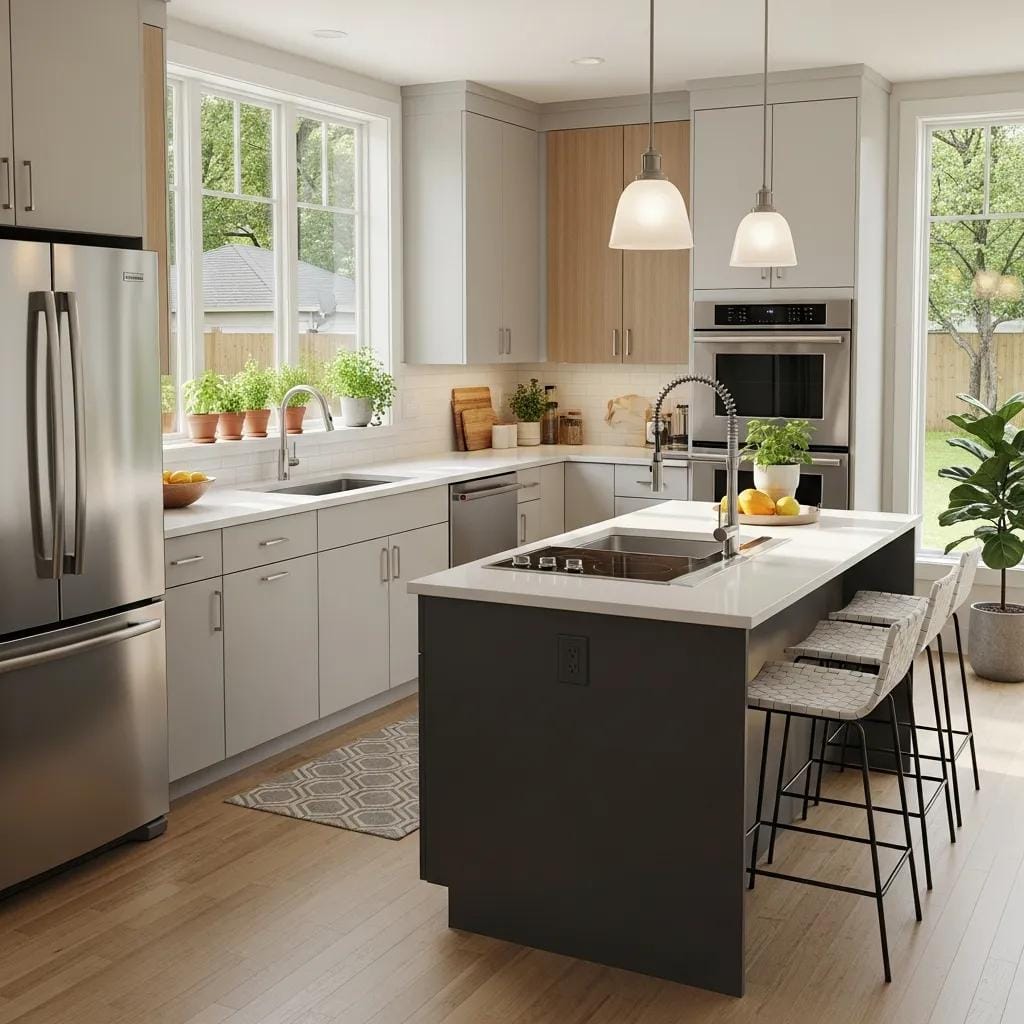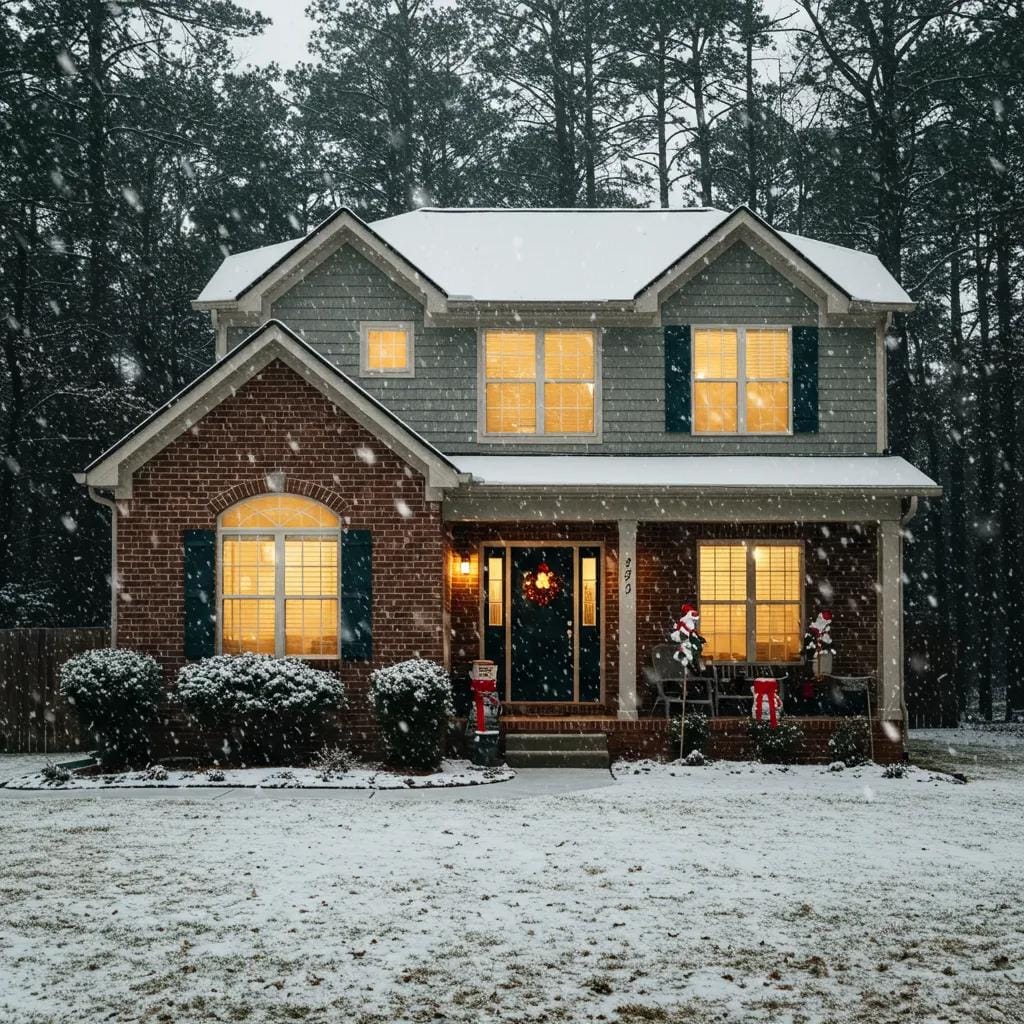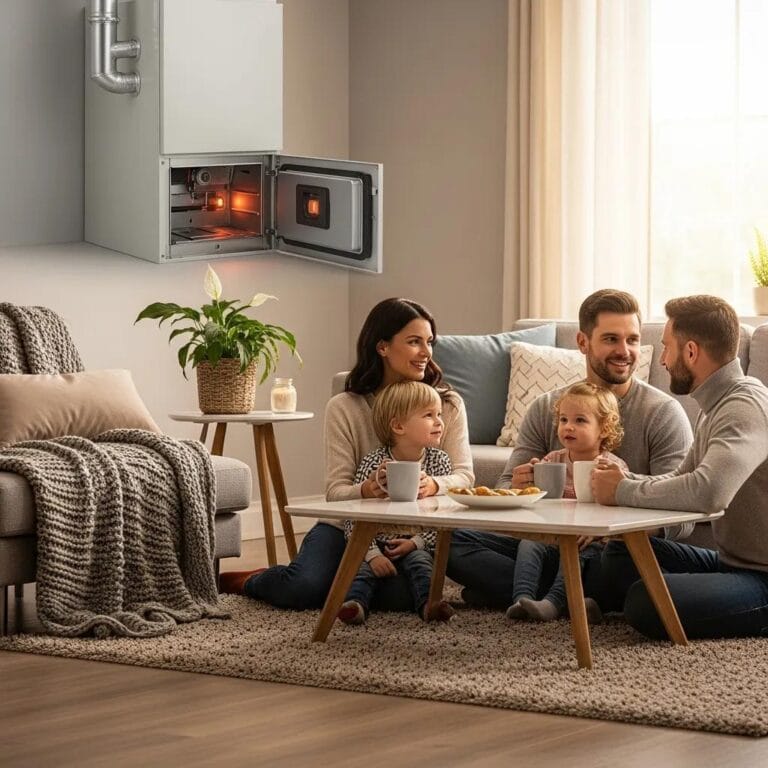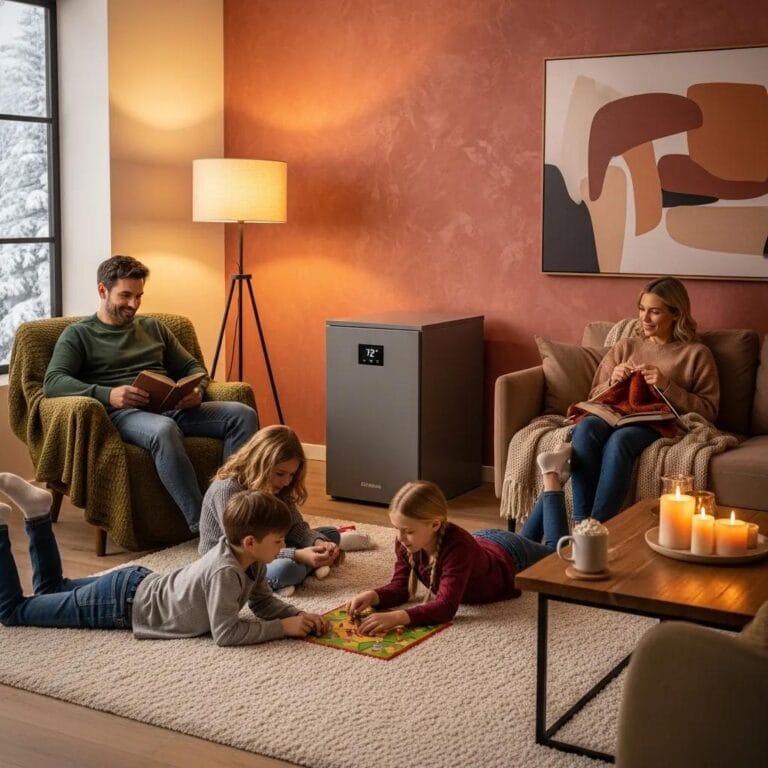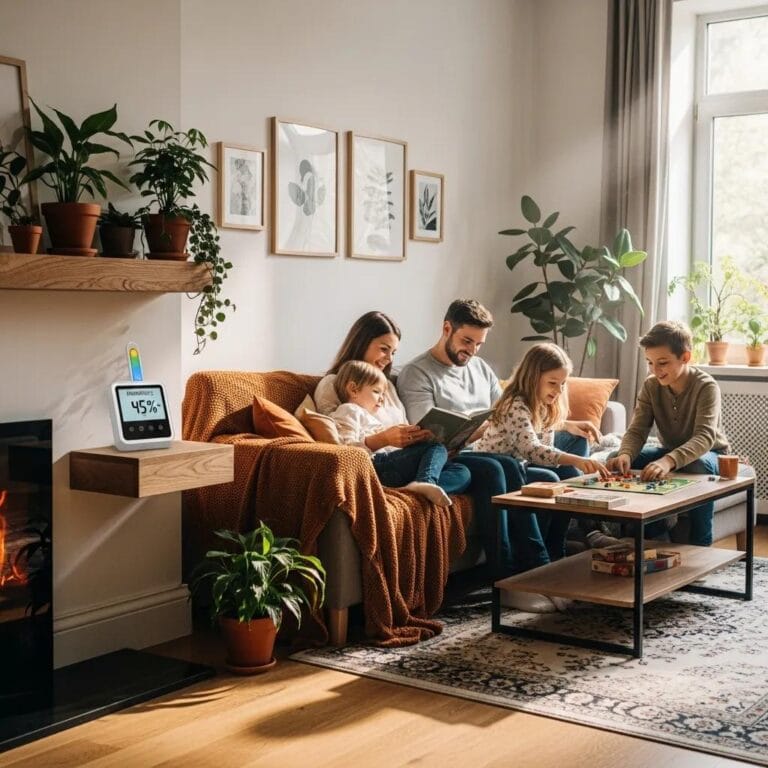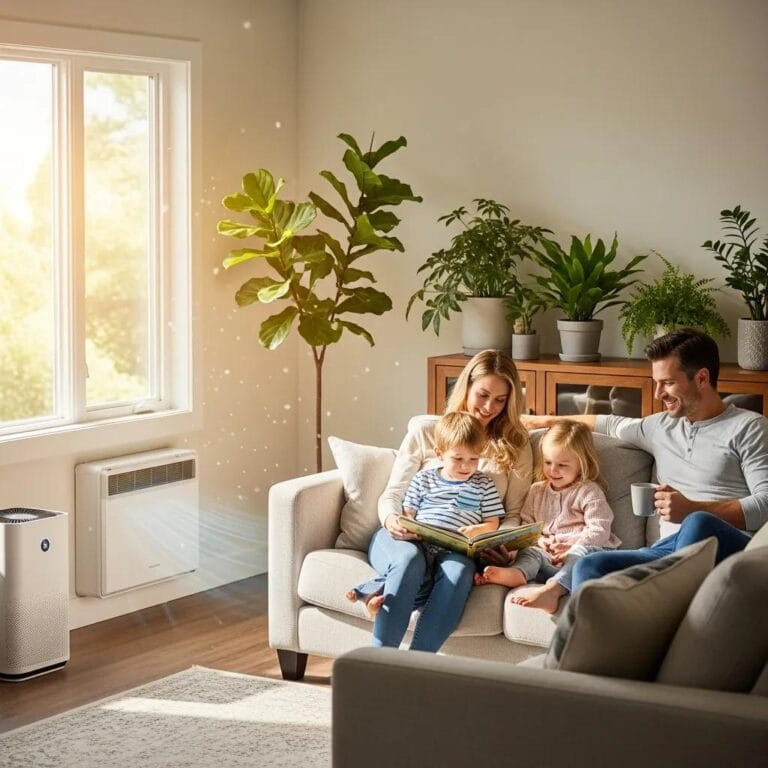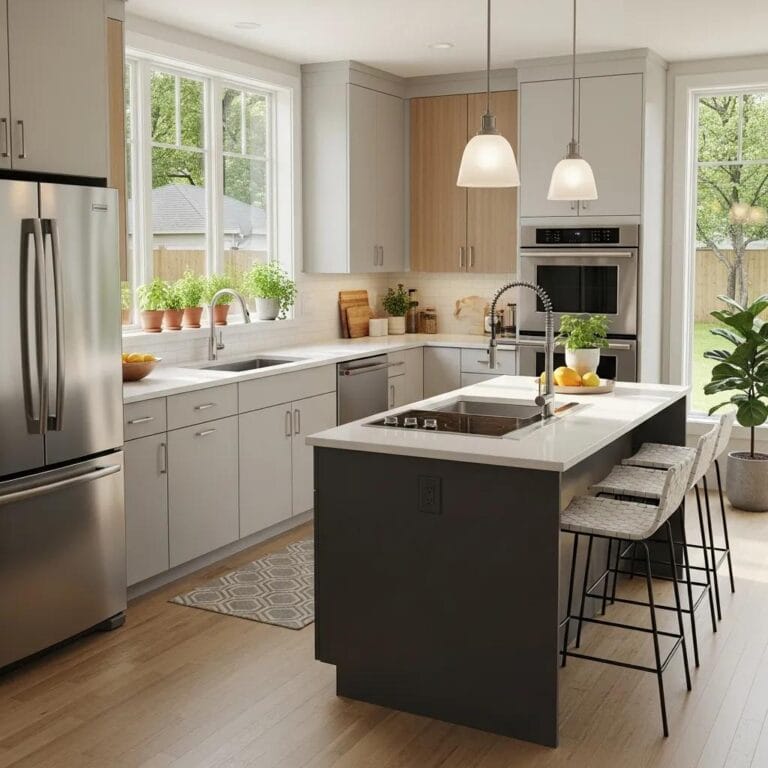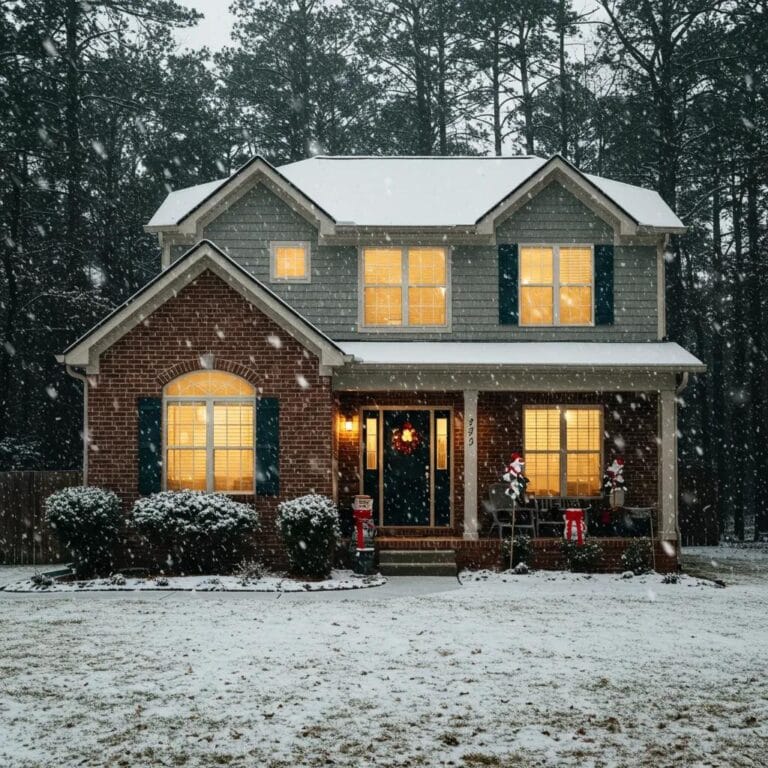In Atlanta, where high humidity, seasonal pollen, and urban pollution are part of daily life, protecting your family’s health starts with the air they breathe indoors. From aggravating allergies to introducing invisible contaminants like mold spores or volatile organic compounds (VOCs), poor indoor air quality can impact sleep, focus, and long-term wellness—especially for children, seniors, or those with respiratory conditions. In this guide, we’ll walk you through practical and effective strategies tailored to Atlanta homes, from selecting the right air purifiers and HVAC upgrades to humidity control and ventilation solutions, so you can create a cleaner, safer, and healthier living environment for your loved ones.
Indoor Air Quality Atlanta: How to Keep Your Home Healthy
What Are the Primary Indoor Air Pollutants Affecting Atlanta Residences?
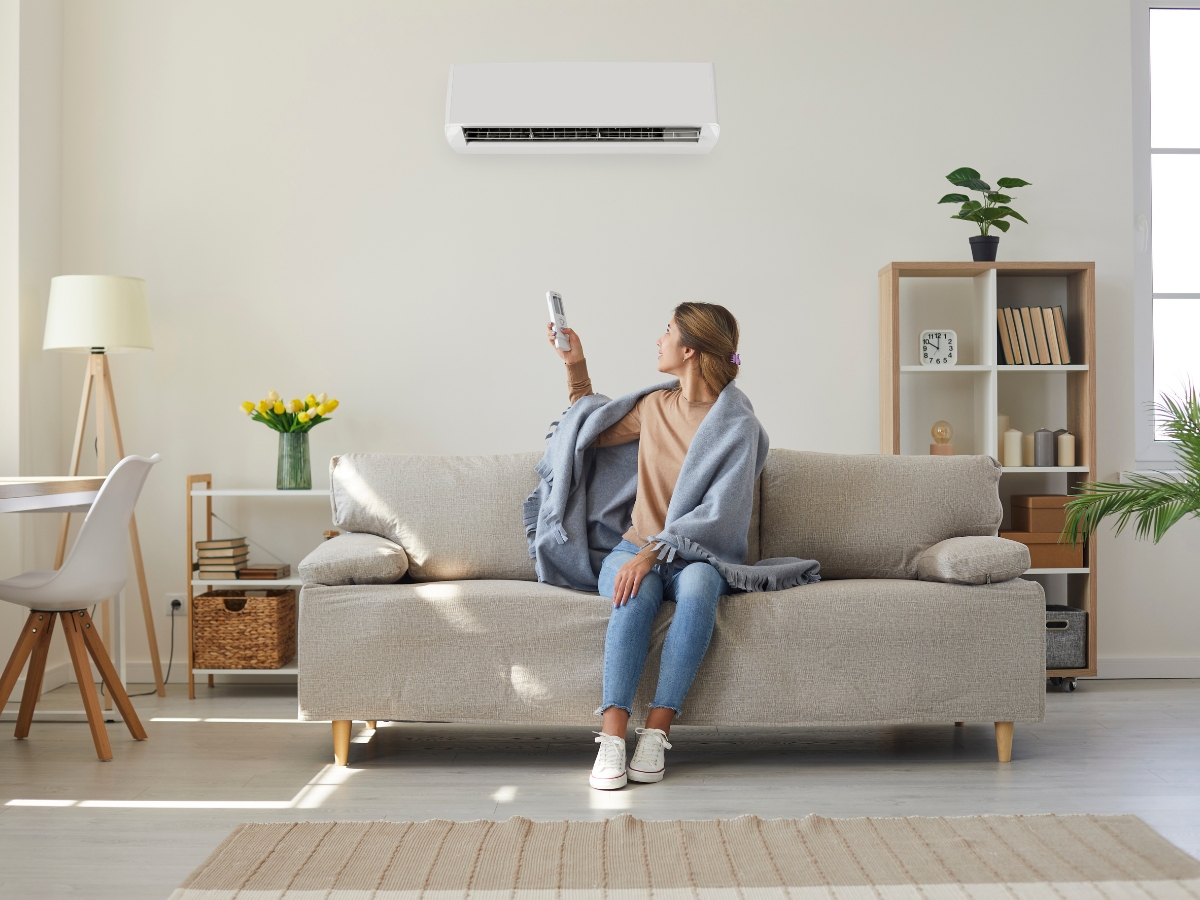
Indoor air in metro homes is often affected by a familiar group of contaminants: mold, common allergens, volatile organic compounds, carbon monoxide, and fine particulate matter. Each one behaves differently, but all can chip away at comfort and well-being if they are not identified and controlled. Framing the issue clearly is the first step to improving indoor air quality Atlanta homeowners can rely on year round.
Which Pollutants Are Most Frequently Found In Atlanta’s Indoor Air?
Mold thrives where moisture lingers, especially after leaks, condensation, or poor ventilation. Allergens such as dust mites, pet dander, and seasonal pollen settle into carpets, bedding, and upholstery, then recirculate with every footstep or burst of airflow. Volatile organic compounds off-gas from paints, cleaning products, and new furnishings, which is why rooms can smell “new” yet still feel irritating to the throat or eyes. Carbon monoxide enters the picture when fuel-burning appliances are poorly maintained or venting is compromised. Fine particulates slip indoors through open doors, cracks, or HVAC intakes, and can also come from cooking and candles. Understanding where these pollutants originate helps you choose targeted fixes instead of guesswork.
How Does Atlanta’s Climate Influence Indoor Air Quality?
Hot, humid summers create ideal conditions for mold and bacteria. When indoor humidity stays high, porous materials absorb moisture and become reservoirs for growth. Spring brings heavy pollen, which rides in on clothing, pets, and ventilation, then lodges in soft surfaces and ductwork. Urban traffic and summer ozone contribute to outdoor particulates that infiltrate through small gaps and window units. On the flip side, sealed-up homes during brief cold snaps can trap indoor emissions from heaters and cooking, which is why balanced ventilation matters in every season.
What Health Risks Do These Pollutants Present To Families?
Short-term exposure often shows up as stuffy noses, itchy eyes, headaches, and fatigue. For people with asthma or allergies, symptoms can escalate into wheezing, chest tightness, and persistent coughing. Fine particulates and carbon monoxide present greater risks, since they affect the cardiovascular and respiratory systems. Children, older adults, and anyone with existing breathing issues feel the impact first, but even healthy households notice poorer sleep and slower recovery from colds when indoor air is neglected.
How Can Homeowners Reduce Pollutants And Breathe Easier?
Start by controlling moisture. Keep indoor relative humidity near 40 to 50 percent, repair leaks promptly, and use exhaust fans during cooking and showers. Improve filtration by installing high-MERV filters that your system can handle without restricting airflow, then replace them on schedule.
Vacuum carpets and upholstery with a sealed HEPA unit and launder bedding in hot water to reduce dust mites and dander. Choose low-VOC paints and cleaning products, and allow new furnishings to off-gas in well-ventilated areas. Make sure fuel-burning appliances are serviced annually and install carbon monoxide alarms on each level of the home. Finally, consider balanced ventilation or a dedicated energy recovery ventilator to exchange stale indoor air with filtered outdoor air without sacrificing efficiency.
With a clear picture of what is circulating through your rooms and a plan tailored to Atlanta’s climate, you can cut down on irritants, stabilize humidity, and create a healthier living environment for everyone under your roof.
How Can Professional Indoor Air Quality Testing Safeguard Your Family in Atlanta?

Professional testing gives you a clear picture of what you are breathing at home. Instead of guessing, trained specialists collect data on particles, gases, and moisture so you can address problems before they grow into health issues. The result is a plan tailored to the way your house is built and to local conditions that affect indoor air quality Atlanta homeowners face, like long pollen seasons and humid summers. With verified findings, you can make targeted improvements that support better sleep, easier breathing, and fewer flare-ups for sensitive family members.
What Does Indoor Air Quality Testing Entail?
A thorough assessment begins with a short interview about symptoms, recent renovations, and any musty or chemical odors you have noticed. Technicians then take air samples to measure mold spores and fine particles at several points in the home. Handheld meters check for volatile organic compounds and carbon monoxide near potential sources such as attached garages, gas appliances, and freshly painted rooms. Moisture mapping helps locate hidden leaks and damp materials that feed mold growth. Ductwork and HVAC components are inspected for dust buildup, standing water, and airflow restrictions. The findings are compiled in a written report that explains what was measured, where levels exceeded guidelines, and which fixes will have the biggest impact.
Why Is Professional IAQ Testing Crucial For Atlanta Homes?
Atlanta’s climate pushes a lot of outdoor contaminants indoors and keeps them circulating. Pollen rides in on clothing and pets, then settles into carpets and upholstery. High humidity encourages mold on drywall, in crawl spaces, and inside air handlers. Urban traffic can raise particulate levels that slip through door gaps and older window seals. Because these sources stack on top of one another, a generic fix rarely solves the whole problem. Professional testing sorts out which pollutants are present in your home, prioritizes the biggest drivers, and links each issue to practical steps such as humidity control, targeted filtration, source removal, or ventilation upgrades.
How Often Should You Schedule IAQ Testing?
Most households benefit from testing every 1 to 2 years, with additional checks after interior painting, flooring replacement, or any project that introduces new materials. It is also smart to reassess after roof leaks, HVAC failures, or flooding. If you notice ongoing symptoms such as morning congestion, frequent headaches, or musty odors that return after cleaning, move testing to the top of your list. Follow-up testing can verify that your fixes are working and confirm that contaminant levels have dropped.
What Improvements Typically Follow An IAQ Assessment?
Recommendations usually start with moisture control. Keeping indoor relative humidity in the mid-range reduces mold growth and dust mites. Next comes filtration. Upgrading to the highest MERV filter your system can handle, replacing it on schedule, and adding a sealed HEPA vacuum routine can cut particle loads. Source control often includes switching to low-VOC paints and cleaners, ventilating during cooking and showering, and servicing fuel-burning appliances. In homes with persistent stale air, a balanced ventilation strategy or an energy recovery ventilator can bring in filtered outdoor air without sacrificing efficiency. Each step is prioritized so you can tackle the biggest wins first and build toward a cleaner, healthier home.
What Are the Top Solutions for Enhancing Home Air Quality in Atlanta?
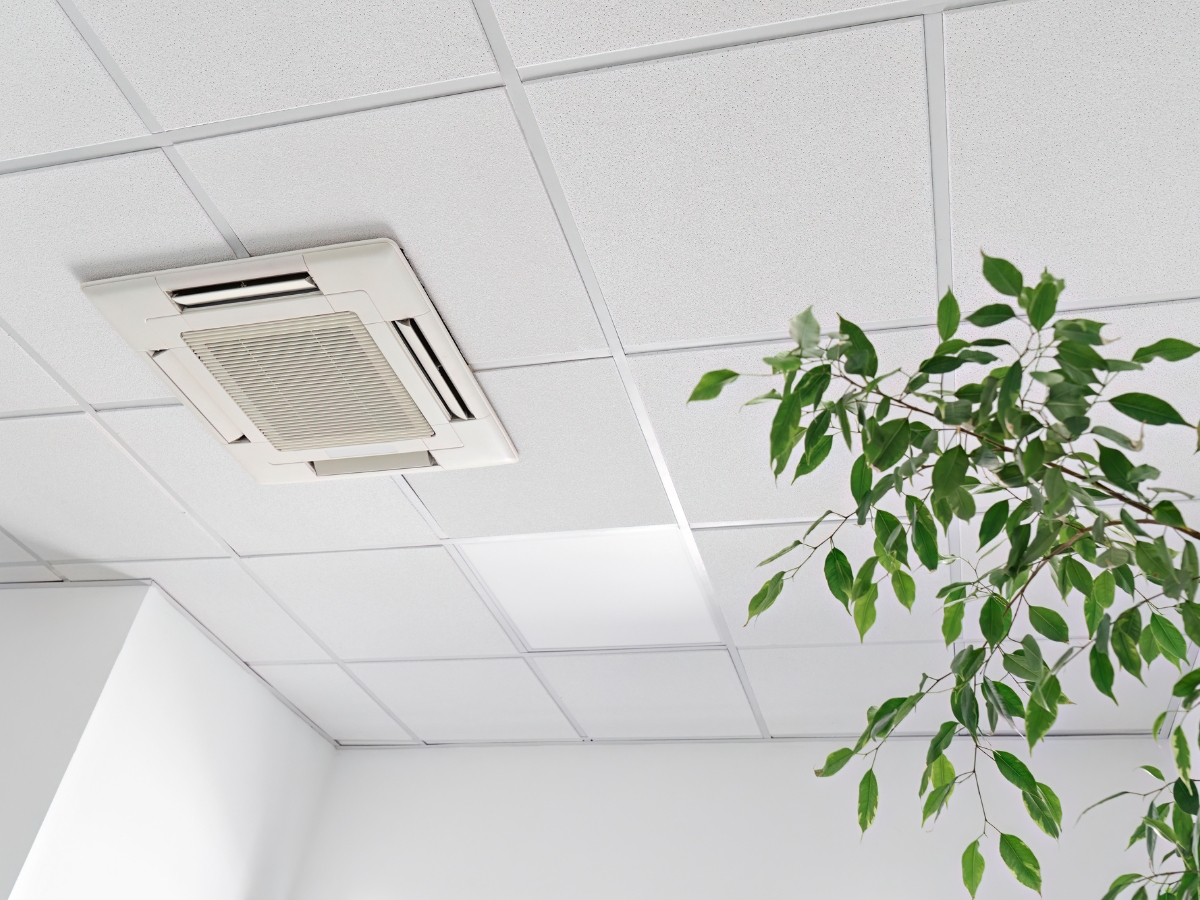
Improving the air you breathe at home starts with a plan that tackles particles, gases, and moisture at the same time. For indoor air quality Atlanta homeowners can trust, the most effective approach combines high-grade filtration, source control, balanced ventilation, and steady humidity management. When these pieces work together, you see fewer allergy flare-ups, less dust, and more consistent comfort from season to season.
How Do Whole House Air Purification Systems Operate?
Whole house purifiers sit in the supply or return side of your HVAC system so every hour of runtime becomes an air cleaning cycle. A deep pleated HEPA or high MERV filter captures fine particles like pollen, mold spores, and pet dander before they spread through the house. Many units add UV C lights in a shielded chamber to inactivate airborne microbes as they pass by the lamp. Some systems pair UV with photocatalytic cells that help break down certain volatile organic compounds. Because the purifier treats all circulated air, results are more consistent than what you get from a stand alone room device.
Why Is Air Duct Cleaning Vital For Fresher Indoor Air?
Over time, dust and debris collect inside supply trunks, branch lines, and return chases. If moisture enters those spaces, spores can settle into the buildup. Each HVAC cycle can then push a small amount of that material back into living areas. Professional duct cleaning removes the accumulated layer, which helps your filter do its job and improves airflow to far rooms. A clean duct system also makes it easier to keep coils and blower components free of residue, supporting better efficiency and more stable temperatures.
How Does Humidity Management Improve Indoor Air Quality?
Keeping relative humidity in the 40 to 60 percent range is one of the simplest ways to support healthy indoor air. In Atlanta’s long warm season, a whole home dehumidifier can pull excess moisture from the airstream so you are not relying on overcooling to feel dry. Drier air slows dust mite growth and makes it harder for mold to take hold in closets, bathrooms, and basements. During short, cool snaps, a central humidifier can prevent overly dry air that irritates sinuses and makes dust more likely to become airborne. The goal is a steady middle range that feels comfortable and reduces common triggers.
What Role Do Filters And Ventilation Play In Cleaner Air?
Your HVAC filter is the first line of defense. Choose the highest MERV rating your equipment can handle without restricting airflow, and replace it on schedule. Upgrading a filter slot to a deeper media cabinet often improves capture while maintaining proper system pressure. Fresh air matters too. A balanced ventilation strategy or energy recovery ventilator brings in outdoor air at a measured rate, tempers it for comfort, and exhausts stale indoor air. This reduces buildup of cooking odors, cleaning fumes, and carbon dioxide that can make a home feel stuffy.
How Can You Maintain Results Over Time?
Simple habits keep gains in place. Vacuum with a sealed HEPA machine, dust with damp or microfiber cloths, and control moisture at the source with exhaust fans in kitchens and baths. Fix leaks promptly and store solvents or paints in sealed containers away from living spaces. Schedule regular HVAC service so coils drain correctly, blowers stay clean, and your purifier performs as intended. With a layered plan tailored to your home, you can achieve cleaner, healthier air all year.
How Does Your HVAC System Impact Indoor Air Quality in Atlanta Homes?
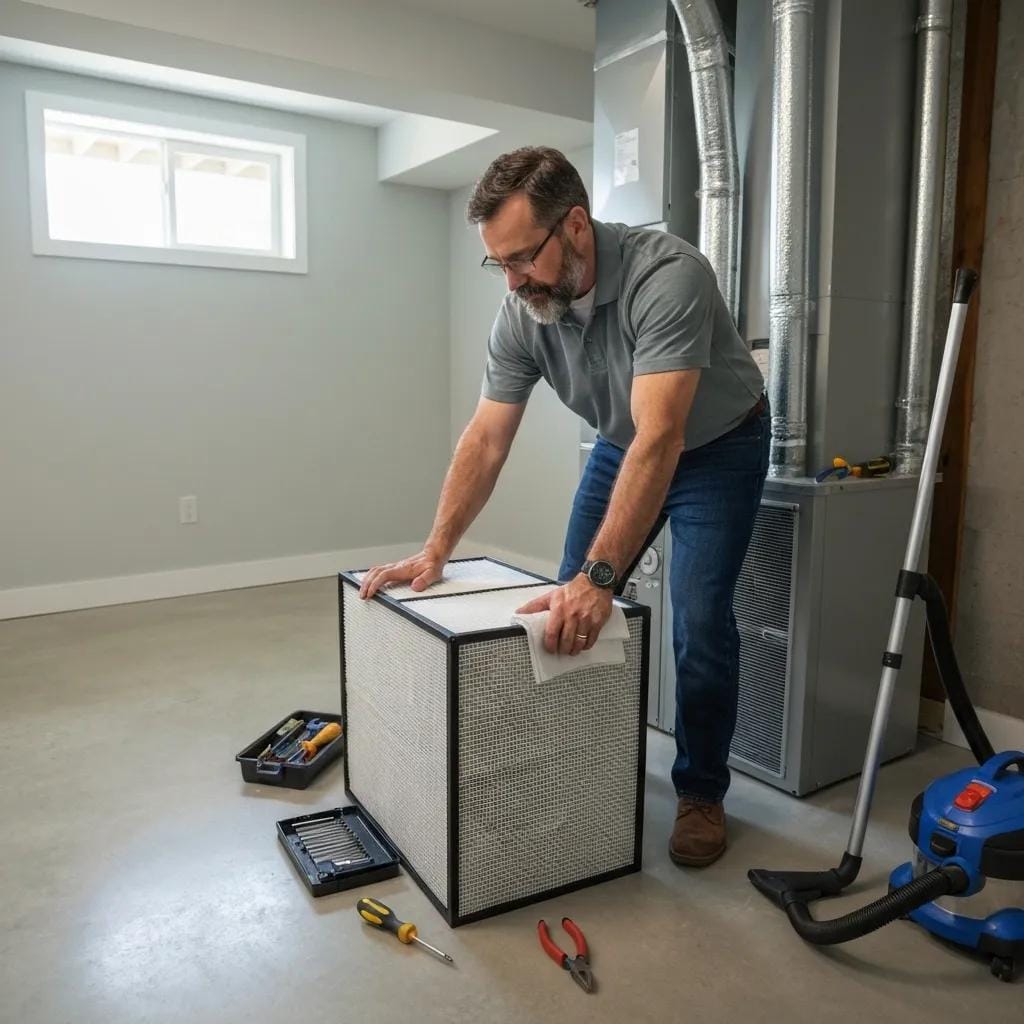
Your HVAC system does more than heat and cool. Every time it runs, it pulls air through a filter, moves it across coils that can harbor moisture, and recirculates it through supply ducts. That process can either reduce pollutants or spread them, depending on how well the system is maintained. For indoor air quality Atlanta homeowners can count on, focus on three pillars: capture particles at the filter, keep moisture under control inside the equipment, and bring in the right amount of fresh air without wasting energy.
What HVAC Maintenance Practices Boost Air Quality?
Routine care keeps contaminants out of circulation and preserves airflow. Start with filters. A clean, appropriately rated filter traps dust, pollen, pet dander, and lint before they reach your rooms. Next, make sure the condensate line drains freely so standing water cannot support mold. Finally, have ducts and vents inspected so crushed runs, loose connections, or blocked grilles do not starve rooms of clean air.
| Maintenance Task | Effect | Recommended Frequency |
|---|---|---|
| Air filter replacement | Captures dust and allergens | Every 3 months |
| Condensate line cleaning | Prevents mold and bacterial growth | Annually |
| Vent and duct inspection | Ensures unobstructed, balanced airflow | Annually |
Consistent upkeep limits pollutant buildup, keeps the blower operating within design pressure, and helps your home feel cleaner with less visible dust.
How Can HVAC Upgrades Reduce Pollutants And Allergens?
Upgrading the filtration cabinet to accept a deeper media filter is one of the simplest ways to remove finer particles without choking airflow. Many homes benefit from a MERV 11 to MERV 13 media filter, provided the system is sized for it. UV germicidal lamps, installed at the evaporator coil, help inactivate microbes where moisture tends to linger. If odors or volatile organic compounds are a concern, consider add ons that use activated carbon or photocatalytic oxidation to reduce gases that ordinary filters miss.
Why Humidity Control Matters In Atlanta
Atlanta’s long, humid season can push indoor relative humidity above healthy levels. When air stays damp, dust mites thrive and surfaces are more likely to grow mildew. A whole home dehumidifier works with your air conditioner to keep indoor humidity in the 40 to 60 percent range without overcooling. In short winter spells, a central humidifier can prevent overly dry air that irritates sinuses and increases airborne dust. Aim for that middle band year round for fewer triggers and steadier comfort.
What Role Do Ventilation And Fresh Air Play?
Filtration only cleans the air that is already inside. Balanced ventilation brings in measured outdoor air while exhausting stale indoor air, which dilutes contaminants like cooking fumes and cleaning vapors. An energy or heat recovery ventilator exchanges heat and, in many models, moisture between the outgoing and incoming airstreams so you get fresh air with minimal energy penalty. This is especially helpful in tighter, newer homes where natural infiltration is low.
Simple Habits That Support Cleaner Indoor Air
Back up your HVAC work with everyday practices. Vacuum with a sealed HEPA machine, dust with microfiber instead of feather dusters, and run kitchen and bath exhaust fans long enough to clear moisture. Fix leaks quickly, store paints and solvents in sealed containers outside living areas, and keep return grilles unblocked by furniture. When combined with filter changes and seasonal service, these habits make a noticeable difference in how your home smells and feels.
With the right maintenance, targeted upgrades, and steady humidity control, your HVAC system becomes the backbone of healthier indoor air all year.
What Steps Can Atlanta Families Take to Protect Themselves from Harmful Indoor Pollutants?
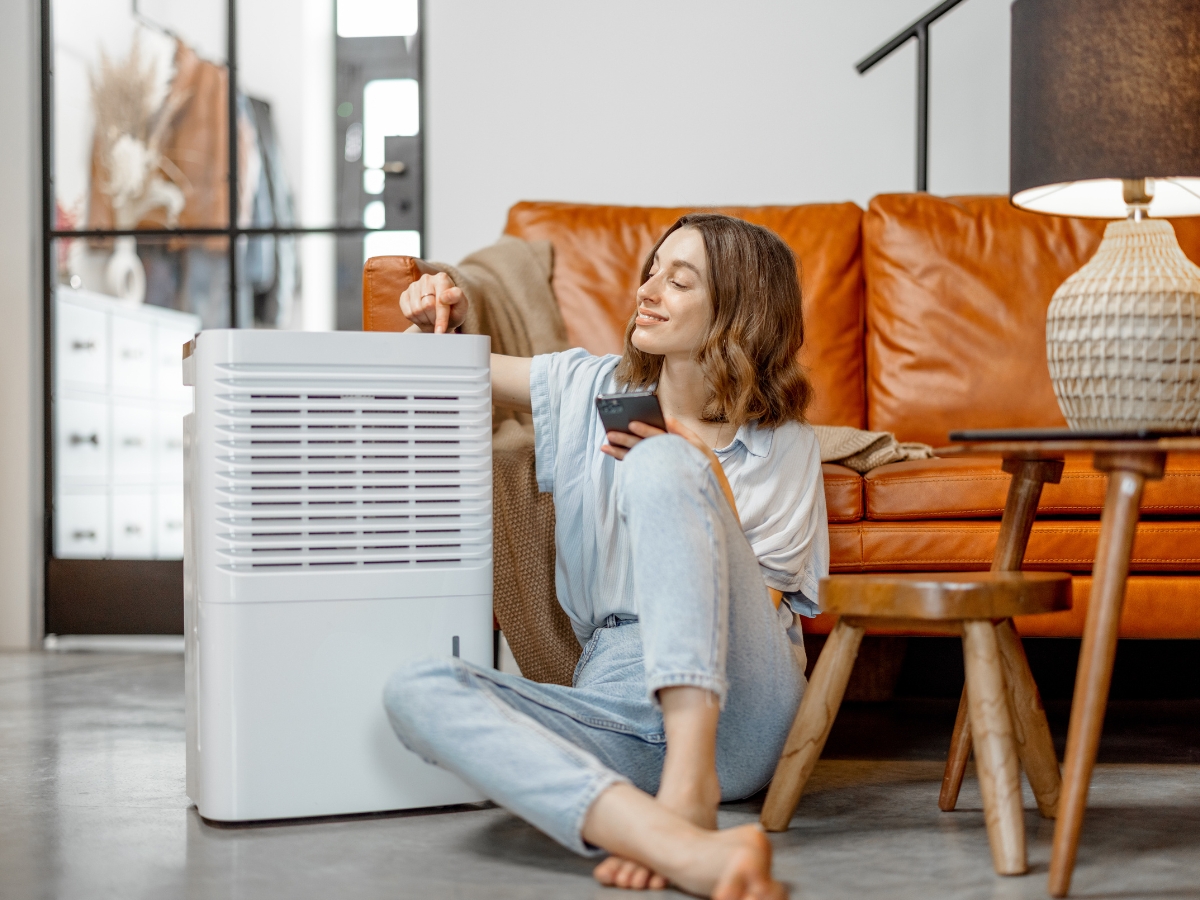
Cleaner air at home starts with steady habits and a little planning. Atlanta’s long pollen season and humid summers can push contaminants indoors, so the goal is to limit what enters, reduce what builds up, and remove what lingers. With a few routine changes, you can improve comfort and support better health for everyone under your roof.
How Can You Minimize Allergens And Mold In Your Home?
Vacuum carpets, rugs, and upholstered furniture with a sealed HEPA machine at least once a week. That single step captures fine dust, pet dander, and tracked-in pollen before they recirculate. Tackle moisture as soon as you see it. Fix drips, clear clogged condensate lines, and run bath and kitchen exhaust fans long enough to dry humid rooms. Wash sheets and pillowcases in hot water every two weeks to disrupt dust mite cycles, and encase mattresses and pillows with allergen-proof covers to keep residues from building up. If you use area rugs, choose low-pile styles that clean easily and dry quickly after spills.
What Are The Indicators Of Poor Indoor Air Quality To Be Aware Of?
Pay attention to patterns rather than one-off symptoms. Frequent headaches, irritated eyes or throat, lingering musty odors, and a film of dust that returns soon after cleaning all point to air that is not being filtered or exchanged well. Other clues include cough or wheeze that improves when you leave home, condensation on windows, and visible spots on walls or vents. When several of these show up together, it is time to look closely at filtration, humidity, and ventilation.
When Should You Consider Professional IAQ Help?
Call a qualified local specialist if symptoms persist despite regular cleaning and filter changes, if you notice visible mold, or if carbon monoxide alarms sound. Professional indoor air quality testing can identify elevated pollen and mold spores, high particulate counts, or volatile organic compounds that basic home tools miss. A pro can also assess your HVAC system’s airflow and pressure, which directly affect how well filters capture contaminants. For the most reliable improvements in indoor air quality Atlanta homes often benefit from a mix of better filtration, humidity control, and balanced ventilation.
Which Everyday Habits Support Cleaner Indoor Air?
Keep shoes at the door to reduce tracked-in pollen and fine particles. Dust with damp microfiber rather than dry cloths to trap debris instead of spreading it. Run the range hood when cooking and let it continue for several minutes after you finish. Store paints, solvents, and strong cleaners in sealed containers outside living spaces. Replace HVAC filters on schedule and keep return grilles clear of furniture and drapes. These small habits add up and make your deeper efforts more effective.
What Seasonal Steps Help Atlanta Households Stay Ahead?
Spring brings heavy pollen, so change filters more often and consider upgrading to a higher MERV media filter if your system can handle it. In summer, use a whole-home dehumidifier or set your air conditioner to maintain indoor humidity near 50 percent to discourage mold and dust mites. In fall, clean ducts and vents if you see visible debris, then test smoke and carbon monoxide alarms before heating season. In winter, if the air feels too dry, a controlled central humidifier can keep humidity in the healthy 40 to 60 percent range without encouraging condensation.
With consistent habits, timely maintenance, and targeted upgrades, you can reduce pollutants and keep air fresher day in and day out. That approach turns your HVAC system into a reliable partner for healthier living and strengthens indoor air quality Atlanta families can trust year round.
Conclusion
Protecting your Atlanta home from harmful pollutants isn’t just about comfort—it’s about safeguarding your family’s health and well-being year-round. From pollen and dust to volatile organic compounds (VOCs), poor indoor air quality can impact everything from allergies to overall wellness. At inAir Heating & Cooling, we provide comprehensive HVAC solutions tailored to your home’s unique needs. Breathe easier starting today: Call (770) 233-7777 or submit an HVAC request online for a professional assessment. Let us help you create a healthier, cleaner living environment for those who matter most.




